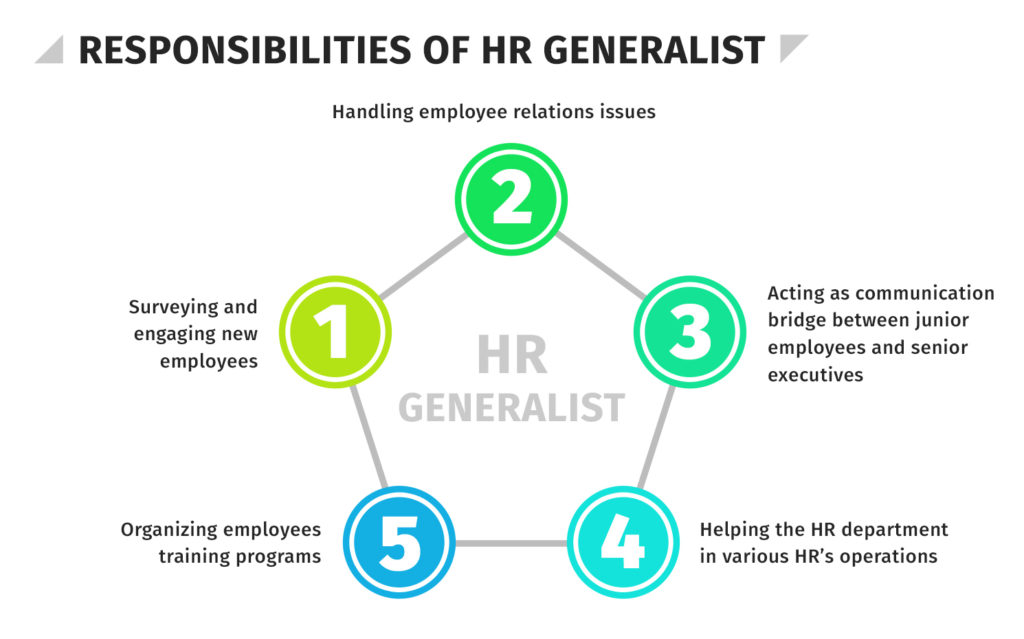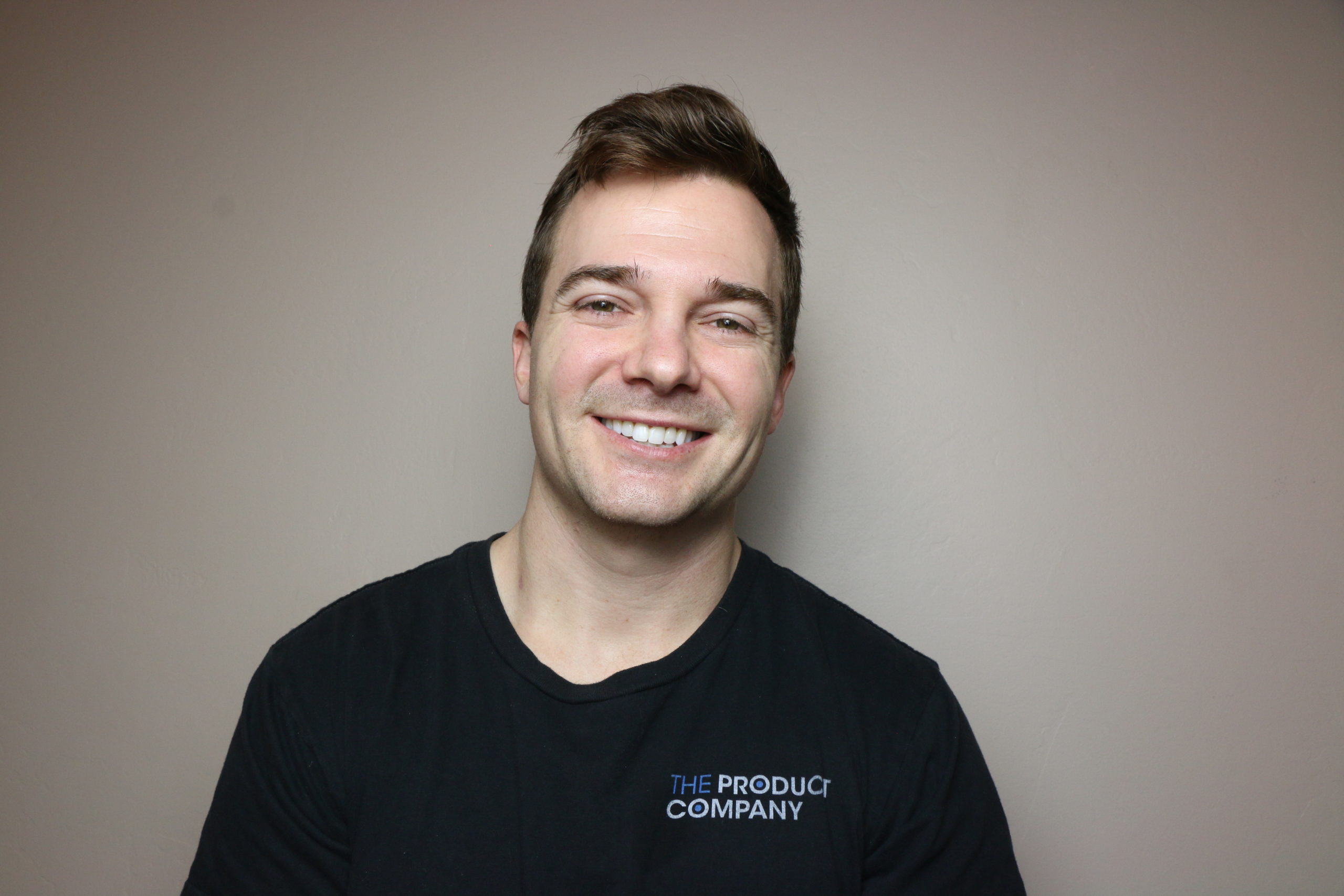The HR generalist role is one of the most common job roles in human resources. Its uniqueness lies in the fact that it doesn’t focus on one aspect of HR, and an HR generalist is well-versed in handling diverse responsibilities. However, such elements mean that creating an HR generalist job description is hardly straightforward.
A suitable candidate for the HR generalist role would need to be a jack of all trades with the HR field. They should also have an extensive skill set and significant experience within the field.
Organizations that wish to attract such an individual must carefully craft the HR generalist job description and ensure that it includes all relevant details.
This article gives you a quick overview of the HR generalist role, how to craft a world-class job description to attract talented candidates, and what the minimum requirements should be. If you’d like to learn more via video, watch below. Otherwise, skip ahead.
The HR Generalist Role
The HR generalist is an entry-level position in the HR department. Organizations hire HR generalists when their HR team has at least an HR manager and a few HR specialists and needs some hands-on assistance with daily tasks. Therefore, one of the core HR generalist duties is to assist senior HR professionals, like the HR director, in their tasks.
The HR department relies on generalists to manage human resources operations daily. They work with the HR manager or HR coordinator to organize training programs, policy administration, hiring procedures, and other administrative tasks.
Organizations should look for a human resource generalist when they need someone with diverse abilities to handle core administrative and strategic responsibilities in the HR department.
Creating a suitable job description will help them find and hire such individuals as their HR generalists.
HR Generalist Job Description Example
An intelligently written HR generalist job description efficiently communicates the organization’s expectations from the role. Therefore, the organization must review its requirements and include precise details about the HR generalist responsibilities. On the other hand, a poorly written job description will invite many unsuitable candidates and hurt the effectiveness of the recruitment process, creating further delays.
The HR generalist role is versatile, and since it involves many diverse duties, different companies define the role differently. Regardless, here is an example of a job description for an HR generalist role:
“The HR generalist will assist HR managers and other personnel within the human resources team, regardless of their division. Among other duties, they have to handle employee data, coordinate employee benefits and incentives, manage hiring processes, and conduct the onboarding of new hires, to name a few. The ideal candidate would be competent in handling different human resources responsibilities and have sufficient professional experience and strong communication abilities.”
The above description also acts as a concise job summary for the HR generalist role.
HR Generalist Job Responsibilities Example
A human resource generalist has a set of responsibilities that touch every corner of the human resources field. While your organization may have different expectations, here are some general responsibilities that every HR generalist has to handle:
- Use HR software to manage payroll and employee benefits, including bonuses, leaves, and conduct absences administration
- Organize hard and soft copies of employee records
- Process documentation and prepare reports relating to performance evaluations
- Coordinate employee satisfaction surveys and give actionable insights to improve employees’ experience
- Support employees with efficient problem-solving when any human resources issues arise
- Communicate with public services when needed
- Reinforce the company policies, rules, and procedures to ensure employees’ safety
- Oversee employee labor and HR federal laws and regulations to ensure compliance
- Review and select resumes during hiring processes and update database
- Assist in the coordination of staffing and recruitment processes
- Plan onboarding strategies and perform new employees orientation to deliver an exceptional early experience
- Recommend and develop employee relations practices to foster a positive employer-employee relations
- Maintain the work structure by updating job requirements and job descriptions for all positions according to HR objectives
- Conduct and analyze exit interviews and make actionable recommendations based on data
- Ensure legal compliance by monitoring and implementing applicable human resource federal and state requirements and conducting investigations
- Arrange seminars, workshops, additional HR training, and conferences based on each department’s needs
HR Generalist Job Requirements Example
Outlining the general responsibilities of the HR generalist of their HR team is beneficial for the organization since it also helps them narrow down the requirements they should expect from a suitable candidate.

Regardless, here are some general qualifications a significantly experienced HR generalist would have:
- Bachelor’s degree in Human Resources Management, Business Administration, or related field
- 3+ years of experience working in the human resources field
- At least one year of experience in labor relations and compliance
- At least one year of experience managing compensation and benefits programs
- 2+ years implementing tactics to improve performance management
- Ability to develop and manage interpersonal relationships at all levels of the company
- High level of customer service skills
- Excellent communication skills, both written and verbal
- Capacity to apply discretion and maintain a high level of confidentiality when handling sensitive information
These are the most common responsibilities, skills, and requirements in HR generalist job descriptions. However, every organization should base these details on the human resources department’s particularities.
For example, the number of years of experience depends on the level of responsibilities that will be on your new hire’s plate. Suppose the HR team already has an HR manager or coordinator who can coach the newly hired HR generalist. Then, the organization can safely require less professional experience. Similarly, if the HR generalist handles payroll processing and tax compliance, the job description should demand extensive labor law and regulation experience.
If you want to gain crucial human resources knowledge that can help you become a resourceful HR generalist, you should check out our top-notch HR certifications at HR University.
Conclusion
The HR generalist role involves many different human resources abilities. For example, they must help ensure efficient business operations, manage employee performance programs, and more. Therefore, you must incorporate all the critical elements when you create the job description for the HR generalist role.
Specifically, you should outline your company’s mission, the human resources team’s position, the associated job duties, and the required skills and capabilities. Such details will help you create an intelligent HR generalist job description that increases the chances of your organization hiring the right HR professional for the job.
FAQ
Here are some common questions people ask about the HR generalist role.
Why Do Some Organizations Have Multiple HR Generalists?
Larger organizations have bigger human resources departments since they have more employees to manage and coordinate. Moreover, such HR departments employ multiple people for important positions like the HR manager, coordinator, and administrator, to name a few.
Since HR generalists are versatile professionals with expertise in multiple human resources areas, larger organizations hire for multiple such roles to keep their HR running smoothly.
How important are HR generalists for an HR department?
HR departments have many specialized roles that handle a particular aspect of human resources. For example, there are roles specifically for benefits and incentives coordination, ensuring diversity and inclusivity, maintaining employee records, and conducting hiring processes. However, very few roles have to deal with all such aspects, and one such role is the HR generalist position.
They assist with many different HR procedures and handle critical day-to-day management. They are also well-versed in using HR information systems to help the organization achieve its objectives. Additionally, they help create innovative employee programs. After all, efficient employee performance programs suggest that the organization is serious about its productivity.
What does a human resource generalist do in business operations?
A Human Resource Generalist plays a critical role in business operations by managing various HR tasks. This includes overseeing recruitment, employee relations, performance management, and labor law compliance. An HR Generalist ensures that the human resources functions align with the overall business strategy and actively participates in shaping policies that support organizational growth and employee well-being. Their multifaceted role contributes to administrative duties and strategic business operations.
How does an HR Professional use Human Resources Information Systems (HRIS)?
HR Professionals rely heavily on Human Resources Information Systems (HRIS) to manage employee data, streamline processes, and improve efficiency in daily operations. HRIS tools allow HR teams to track employee records, payroll, benefits, and performance metrics. These systems help an HR professional automate routine tasks, generate reports, and ensure data accuracy, which supports decision-making and enhances the overall management of human resources within a company. Mastery of HRIS is essential for any HR professional looking to succeed in today’s tech-driven work environment.
Why is it important for a Human Resource Generalist to participate in business operations?
It is important for a Human Resource Generalist to actively participate in business operations because HR functions directly impact an organization’s success. By aligning HR strategies with business goals, HR Generalists ensure that the workforce is capable, motivated, and productive. Their involvement in employee engagement, training, and compliance helps improve overall business performance. An HR Generalist’s ability to understand and contribute to business operations fosters a strong link between human capital and organizational success.
What are the key skills required to be an effective Human Resource Generalist?
To be an effective Human Resource Generalist, one must possess skills ranging from administrative capabilities to strategic thinking. Key skills include a strong understanding of Human Resources Information Systems (HRIS), effective communication, problem-solving, and handling employee relations and conflict resolution. Additionally, HR Generalists should be knowledgeable in areas such as employment law, recruitment processes, and employee development. The ability to participate in business operations and contribute to achieving organizational goals is also crucial for success in this role.
If you are new to Human Resources and are looking to break into an HR Generalist role, we recommend taking our HR Generalist Certification Course, where you will learn how to build your skillset in human resources, build your human resources network, craft a great HR resume, and create a successful job search strategy.























